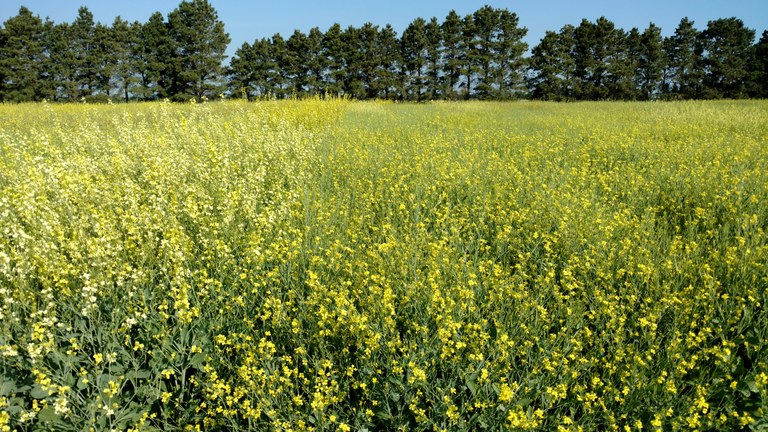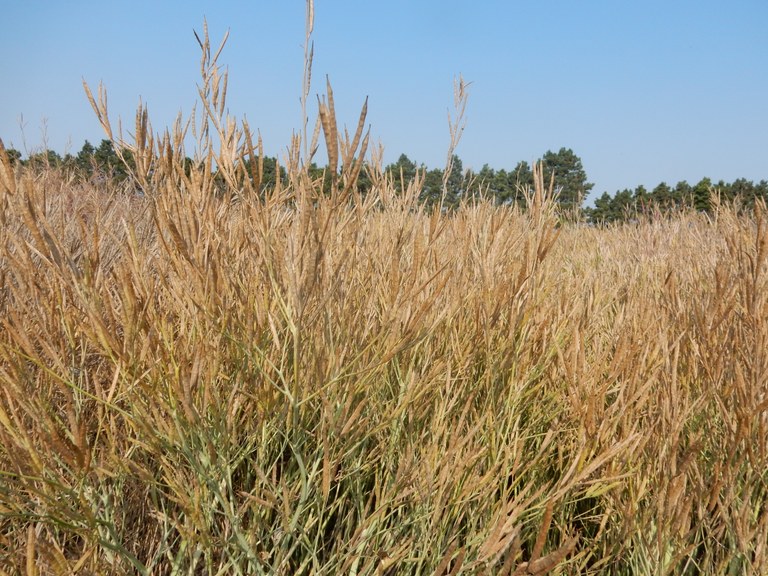Brassica carinata
Carinata (brassica carinata) is an oilseed crop that will be entering the marketplace in 2018 for North Dakota. Carinata is a crop that will be used in the biofuel industry and is generating buzz as being the only biofuel that can be used for jet fuel without being blended. This makes it an attractive option for reducing the carbon footprint in the aerospace industry. After processing, the crushed seeds can also be used for cattle feed due to the oil extraction process that will be used, reducing the glucosinolate content.

Agronomically, carinata is similar to canola in a lot of ways. At emergence, the two crops are almost identical. The main visual difference is that carinata pods point nearly straight upwards, compared to canola which are mostly horizontal. There are several other differences. Most importantly, carinata is a non-GMO crop, so it will be managed with conventional herbicides. This does reduce the seed cost compared to canola. Carinata has a similar rate of growth to canola, matching some of the later maturing canola varieties. However, carinata does take a fair amount longer to dry down after bloom. Our experience has been that swathing or desiccation occurs roughly 1-2 weeks after most canola. One of the advantages of carinata is that there is less pod shatter as the plants dry down. The hope is that straight combining will be the preferred harvest method. Carinata has yellow, brown, and green seeds and can have yellow or white flowers. Seeding rates are between 5 and 7 lbs/a. Yields are reported to be similar to canola. Unfortunately, our first year of testing was in 2016 when we had significant hail damage, so it is difficult to confirm the yield potential. In 2017, we have a great looking crop, with the plants ready for swathing in the next week or so.

If you are looking for a new crop in your rotation, this could be a good fit. It’s an aggressive and competitive crop and our evidence is indicating that it is a lower input crop than canola. Agrisoma is the group developing the varieties and markets. If you have any questions or interest in the crop, feel free to call or e-mail me.
Mike Ostlie, Ph. D.
mike.ostlie@ndsu.edu
Research Agronomist


